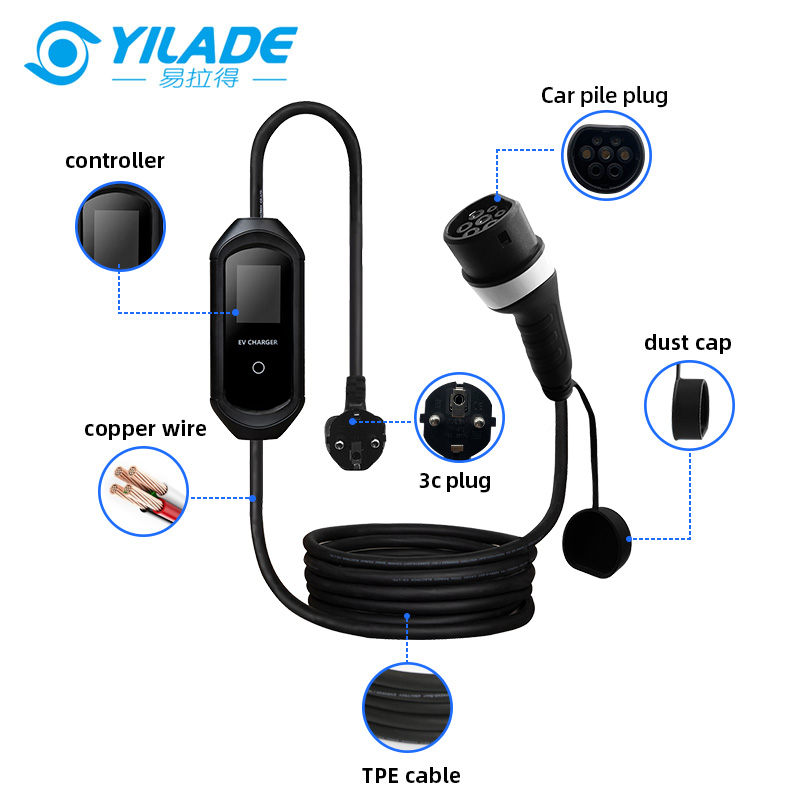Portable electric vehicle (EV) chargers are becoming increasingly popular due to their convenience and flexibility. However, the charging speed and efficiency of these chargers can vary significantly based on various factors. Understanding these factors is crucial for optimizing the charging process and maximizing the overall performance of a portable EV charger.
1. Power Capacity
The power capacity of a portable EV charger is a crucial factor that directly affects the charging speed. Portable chargers typically range from 1.8 kW to 11 kW, and higher power capacity chargers can deliver faster charging rates. It is important to choose a charger with a power capacity that matches the capabilities of the EV's onboard charger to ensure efficient charging and minimize charging time.
2. Input Voltage and Current
The input voltage and current supplied to a portable EV charger significantly impact its charging speed and efficiency. Most portable chargers are designed to operate with a standard household voltage (120 VAC in the US or 230 VAC in Europe) or a higher voltage (240 VAC in the US or 400 VAC in Europe). Higher input voltage allows for faster charging. Additionally, the current flow affects the charging speed; higher current results in faster charging, but it may require specialized outlets and wiring.
3. Battery Capacity and State of Charge (SOC)
The battery capacity and the state of charge (SOC) of the electric vehicle play a vital role in determining the charging speed and efficiency. If the battery capacity is large and the SOC is low, the charging process can be completed at a faster rate compared to a battery with a smaller capacity or higher SOC. Efficient portable EV chargers have the capability to intelligently manage the charging process based on the battery's capacity and SOC, ensuring optimal charging speed and efficiency.
4. Charging Protocol and Communication
The charging protocol and communication between the vehicle and the charger also affect the charging speed and efficiency. Different EV manufacturers adopt different charging protocols, such as CHAdeMO, CCS, or Tesla Supercharger. Portable EV chargers must support the appropriate charging protocol to ensure compatibility and maximize charging speed. Efficient communication between the charger and the vehicle allows for real-time monitoring, control, and adjustment of the charging process, resulting in improved charging efficiency.
5. Temperature and Cooling Systems
The temperature of the charging environment and the presence of cooling systems significantly impact the charging speed and efficiency. Higher temperatures can lead to reduced charging speed as excessive heat affects the battery's performance. Portable chargers equipped with cooling systems help regulate the temperature during charging, ensuring optimal charging efficiency. Additionally, some advanced chargers incorporate smart features that can adjust the charging rate based on the temperature, further improving efficiency.
Conclusion
In conclusion, several factors influence the charging speed and efficiency of a portable EV charger. The power capacity, input voltage and current, battery capacity and SOC, charging protocol and communication, as well as temperature and cooling systems all play a significant role in determining the overall performance. It is crucial to consider these factors when selecting and using a portable EV charger to ensure efficient charging and optimize the charging experience for electric vehicle owners.

